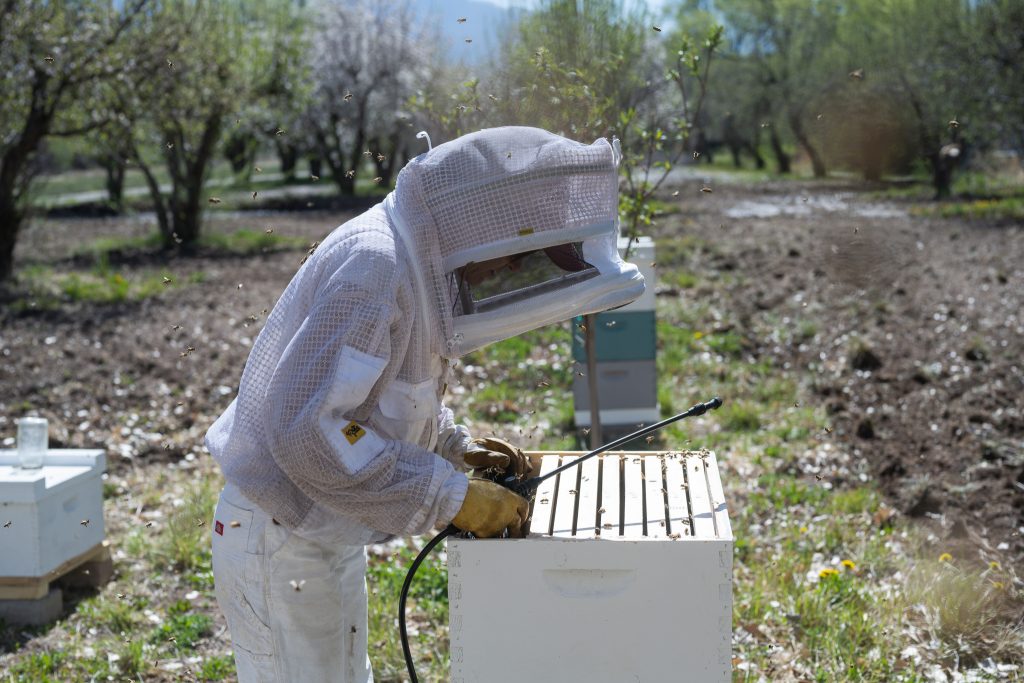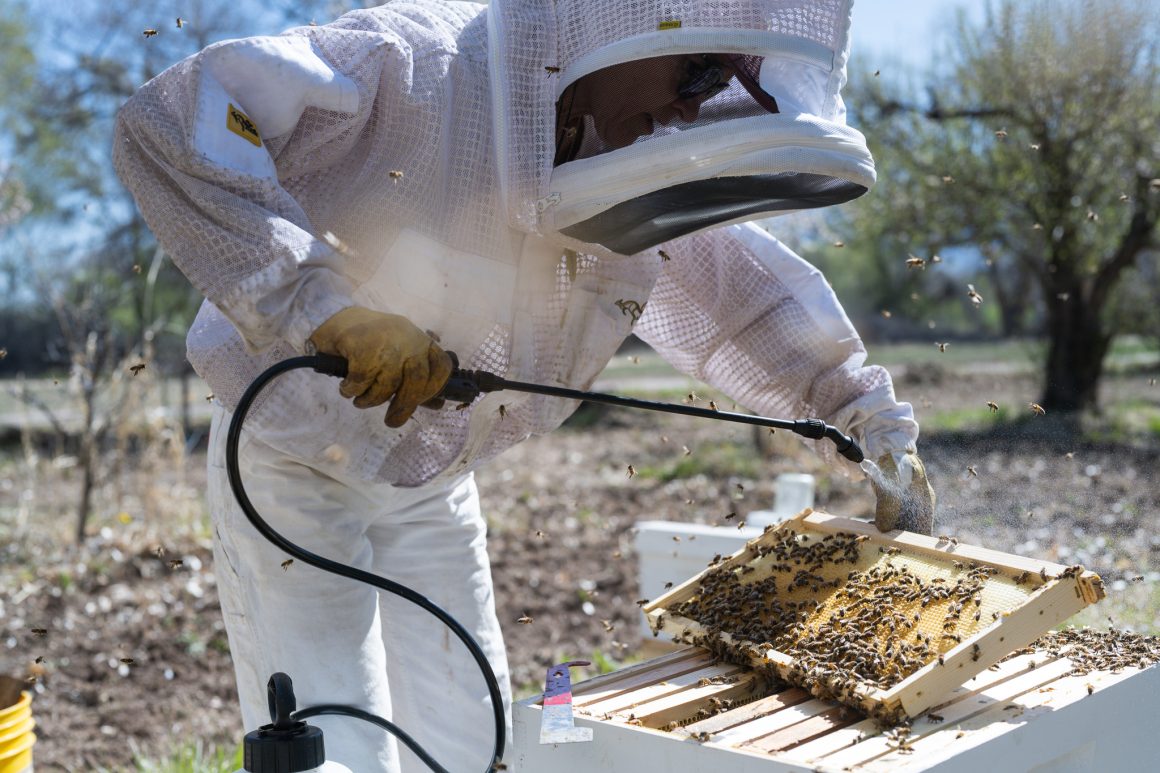Terra Vera has introduced ApiVera, a bee health solution to regenerate the apian sector. The launch is no departure from the company’s keynote amino acid-reliant crop management platform but an improvement of the same. Both a brand and division of the company, ApiVera seeks to improve bee colony sustainability one step at a time from New Mexico and beyond. Notably, “Api” denotes the Latin word for “bee.” This at a time when bees are facing many threats, some from predators, others from harsh winters.
Next, Selina Wamucii quotes Carlos Perea, CEO and Co-Founder of Terra Vera, alongside company advisor and industry consultant, Dr. Jeff Pettis.
“Preserve Bee Populations”
Existing bee-reliant crop management solutions have inspired the company to venture into bee health commitment as well:
“Building off Terra Vera’s foundational work in crop management solutions that are pollinator-friendly, we felt compelled to do our part to preserve bee populations,” says Carlos Perea.

“Bees play a vital role in food security and we are excited to help beekeepers of all types increase the health and vitality of their colonies. In turn this will help ensure we continue to have affordable access to the many crops that rely on honeybee pollination such as apples, almonds, berries and so many more.”
Reducing Bee Colony Mortality
On bee mortality, which in the U.S. alone cut colonies by -28.1% during the 2015-16 winter, Terra Vera recommends:
“Terra Vera’s technology is groundbreaking, as it’s the most promising safe and sustainable solution that I’ve seen that can improve bee colony health and survival rates,” says Dr. Pettis. “By launching ApiVera with a dedicated focus on developing and expanding the reach of bee health solutions, we can help more beekeepers than ever before and in turn make a positive impact on our environment and food systems around the globe.”
Upcoming Crowdfunding Resource by Terra Vera
On top of this promising apian news, Terra Vera is honored to soon launch a new crowdfunding campaign.
“[We’ll] soon we’ll be sharing the news that Terra Vera is launching a crowdfunding campaign to accelerate the production and distribution of these proprietary solutions for beekeepers. More details to come!”
Ends an insider’s marketing statement.
For more information about ApiVera its technology and services, please visit https://terravera.com/apivera.
About Terra Vera
Terra Vera is a technology company dedicated to making agriculture more environmentally and economically sustainable. The company specializes in agricultural products that replace conventional chemical pesticides and synthetic fertilizers, which are linked to environmental damage and the decline of bees and other pollinators vital to global food supplies. Terra Vera’s biomimicry technology provides growers and beekeepers with all-natural solutions that are cost-effective, scalable, and generated on demand. For more information about Terra Vera, visit terravera.com.
ApiVera Social Media:
Instagram: @ApiVera
Facebook: @ApiVera
As a fitting summary, below are some statistics about the beekeeping status of the world.
Global Bee Statistics
All 20,500 species of bees globally are vital for plant biodiversity, production of honey and the industrial processing of beeswax. Biodiversity contribution through pollination converts to $168 billion annually in value terms, according to The Conversation. In honey production, the world produced a total of 1.8 million tonnes, in 2021, per Destatis Statistics. China topped the harvest in 2021 at 486,000 tonnes or a 27% global share .
Furthermore, global honey production improved between 1961 and 2017 by 42.9%. This total could have been more were it not for winter bee colony losses. In the 2015-16 winter, for example, the U.S. alone lost -28.1% in bee colonies. This further led to American bee diversity reduction by 23% in the 2008-2013 period.
How has the world’s bee management improved or reduced historically?
Although overall bee colony management improved by 85% between 1961 by 2017, it degraded by per capita terms. According to the journal Nature, while in 1961 there were 13.6 bee colonies for every human settlement of 1,000 people, by 2017 there were only 10.9 colonies per 1,000 people. Thus, as the human population grows, so is bee management per person reducing.
Have bee colonies increased or reduced worldwide since 1990?
Though bee colonies worldwide increased by 46.8% from 69.2 to 101.6 million colonies between 1990 and 2021, some regions saw decreases. During this period, Western Europe lost bee colonies by -1.2%, while Eastern Europe lost by -24.9%. North America shed -8.5% and so did Central America by -1.2%. Most world regions saw a period increment however. Melanesia in the east Pacific recorded the highest increase by 601.6% while Western Africa gained by 391.5%.
Which countries have the most beehives?
In 2022, India had the largest number of beehives with 12,614,760. China followed at 9,416,860 units, while Türkiye and Iran finished the Asian top 4 lead with 9,248,670 and 8,984,680 beehives, respectively. Ethiopia and Tanzania were the top countries outside Asia in the rankings, with 7,575,400 and 6,208,040 beehives, respectively.
